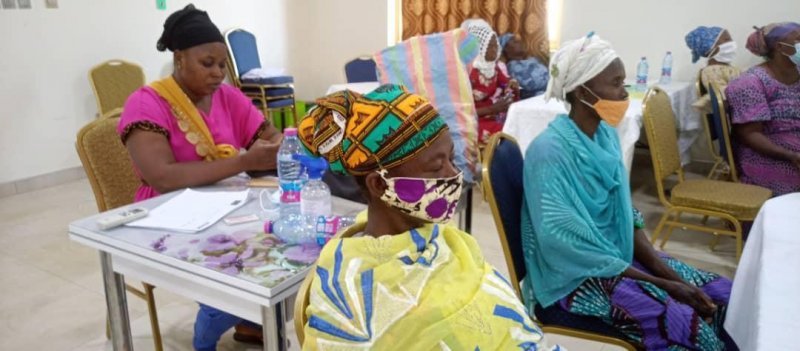Over 60 female agricultural extension volunteers in the Sissala East and the Wa East Districts have benefitted from a three-day zonal based sensitization on agricultural extension services.
It was organized concurrently for selected women farmers in Tumu and Bugubelle in the Upper West Region.
Madam Felicia Juabie Munkaila, a Project Officer of the Northern Ghana Integrated Development Project (NGIDP) with ActionAid in a welcome address, said the project was a four-year project funded by the European Union and ActionAid Ghana as the lead consortium in partnership with Tree Aid and Urbanet.
Madam Munkaila said the object of the project was to contribute to rural poverty reduction in Ghana through economic development adaptation of environmentally-sustained agriculture policies and practices and greater access to social protection.
She said the ActionAid and the Northern Ghana Integrated Development Project rationale depicted a more serious situation of women not having equal access to extension services as compared to their male counterparts, aside the patriarchal nature of communities in northern Ghana, which made male dominant over women.
She said women in the Northern sector faced difficult situation as smallholder farmers as Agricultural Extension officers often gave more priority to large males in advantaged positions socio-culturally than women, with the average ratio of agricultural extension agent to farmers as 1:1,850 in Ghana, which was well below the Food and Agriculture (FAO) recommended ratio of 1:500 (MOFA 2018).
She said the situation was even more serious for women farmers who accounted for over 70 per cent of total food production in Ghana, hence the need for these women to be trained as extension volunteers, which is being facilitated by the Ministry of Food and Agriculture.
Resource persons from the Ministry of Agriculture took the women through the proper use of agrochemicals such as weedicide, fertilizers, fungicides and pesticides on their farms as they had the potential to pose danger to their health as women, and advised them to desist from personally spraying pesticides on their farms.
Mr Malik Tingbani, a Municipal Management Information System Officer and Mr Haruna Dasmana, a Plant Protection Officer were the resource persons who took the participants through the three-day training in Tumu and Bugubelle concurrently, on topics that included; basic husbandry practices, extension education, climate resilience agriculture, agronomy of cereals, legumes and vegetables. The rest of the topics hinged on Post-harvest management, the role of extension services in climate and its impact on agriculture, record-keeping, safe handling of agrochemicals and the importance of supplementary feeding in livestock.
In Bugubelle where the other training took place, Mr Haruna Suara, a Municipal Agric Extension Officer and Mr Eric Adongo, an Agric Extension Agent took the participants through the training session.
The project has five Major Output to build the capacity of civil society organizations (CSOs) and local movement to become champion of their communities.
Mr Malik Tingbani, a Municipal Management Information System Officer and Mr Haruna Dasmana, a Plant Protection Officer were the resource persons who took the participants through the three-day training in Tumu and Bugubelle concurrently, on topics that included; basic husbandry practices, extension education, climate resilience agriculture, agronomy of cereals, legumes and vegetables. The rest of the topics hinged on Post-harvest management, the role of extension services in climate and its impact on agriculture, record-keeping, safe handling of agrochemicals and the importance of supplementary feeding in livestock.
In Bugubelle where the other training took place, Mr Haruna Suara, a Municipal Agric Extension Officer and Mr Eric Adongo, an Agric Extension Agent took the participants through the training session.
The project has five Major Output to build the capacity of civil society organizations (CSOs) and local movement to become champion of their communities.
In addition, increase small holders’ farmers resilient to the impact of climate change through sustainable agriculture practices and to increase the income level of women and young people and people living with disabilities through non-timber products agriculture.
Source: GNA


